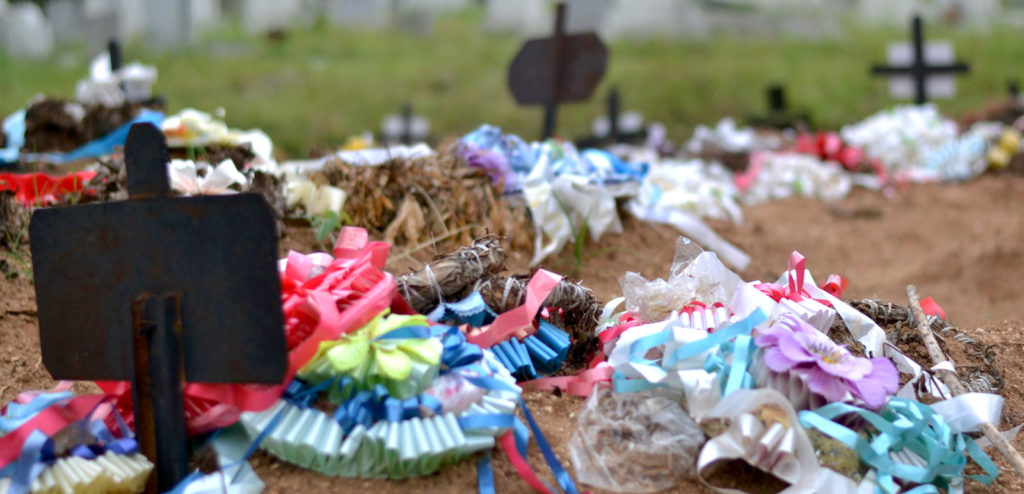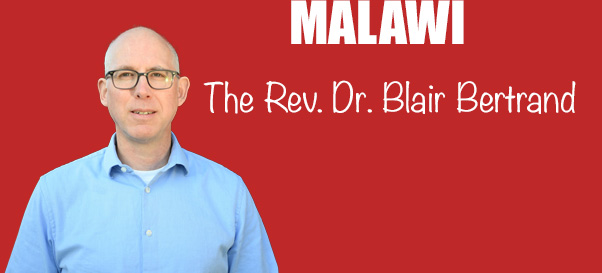
I’m struggling with social media right now. More than normal. My timeline is filled with North Americans and Europeans who can only think of one thing – Covid-19/coronavirus. My Malawian feed is filled with the normal irrationality that is Malawian politics but that is rarely uplifting and often depressing.
A former student asked why this was such a struggle and, as is Isak’s habit, it was a very good question. Here is my struggle in a nutshell: North American and European stress about the failure of their health systems to contain and control Covid-19 is their worst nightmare but the everyday reality of my Malawian friends and colleagues. The injustice of this is difficult to process. At once it is convicting, because I am Canadian, and absolutely galling, because I live and work in Malawi.
Here is a longer meditation on it that I hope can add some perspective to what I’m experiencing in myself.
My dad was a healthy septuagenarian until last year. He now has an extremely rare auto immune condition which attacks one kind of cell found only in the kidneys and the lungs. It came into his life just over a year ago, rendering his kidneys non-functioning within days. He is on daily dialysis for the rest of his life, something that he doesn’t like but is grateful for. He also lives with the knowledge that if he gets any kind of respiratory illness the auto immune condition will more than likely destroy his lungs. Statistically, he is likely to die if he gets Covid-19.
I don’t say this to elicit sympathy for him or for those who love him. Nor am I going to tell you what to do in the current pandemic. Rather, I have two related observations. The first is, because he lives in Ontario (Canada) and is part of the public Ontario Health Insurance Plan (OHIP), he is still alive and not bankrupt. There was a system that dealt with him and continues to support his daily medical needs paid for by taxes. He has, at times, required quite intensive interventions and at every step he has had competent care from a publicly funded system. In other words, the system has worked.
The second is, if he was Malawian or living in almost any sub-Saharan country or many parts of Asia, he’d be dead. There are no medical systems here adequate enough to deal with his kind of acute medical needs. His 1:1,000,000 condition was extremely difficult to diagnose and involved the few doctors in the world who know anything about it. Whatever could go wrong, has gone wrong, and it has taken quick acting and sophisticated medical equipment to save his life on more than one occasion. The medical system has not only had to exist but has had to be well funded with competent staff and resources. None of these are true in Malawi.
I don’t want my dad to die. I love him. But I’m also under no illusions that if I or almost any of the other 18 million people here in Malawi was to have the same sudden onset of a rare auto immune condition, we would die. It was a fact that I knew before moving here and one that I have accepted not only for me but for my three children. Friends and family thought that we were insane to knowingly enter into a situation where there was no adequate health system to back us up. And maybe they were right. Bluntly, there is no system here to deal with acute medical conditions much beyond vague diagnosis and prescriptions of ibuprofen.
And so, I watch the hysteria surrounding Covid-19 and I can’t help but feel, well, quite a lot really. Oh, I know, you can talk me down from saying it isn’t “hysterical” and point to the importance of flattening the curve or the efficacy of banning large gatherings, but when you do that, I think you miss the larger point. All of the interventions discussed, all of the advice, is predicated on the simple fact that the West has medical systems that can keep people alive when they would otherwise die.
The simple fact is that what the West most fears, the collapse of these lifesaving medical systems (and therefore possible death of oneself or one’s loved ones), is the everyday lived reality for me and my neighbours. Millions, billions even, of people live their lives without a functioning health system.
If the coronavirus hit Malawi there would be no run on toilet paper because the majority of people do not have toilets. Nor would there be a sudden increase of hand washing because most people do not have running water and cannot afford to buy soap. Working from home is not an option since just barely over 13% of the population has access to electricity, and Malawi has one of the worst internet penetration rates in the world so video conferencing isn’t happening.
The WHO admits that Malawi doesn’t have the ability to test for the coronavirus. Not that there isn’t a political will a la the US to do so. The reality is that even if they wanted to, the health officials couldn’t test for it. This is a country that doesn’t have ambulances to attend car crashes. If you are injured, you hope another car comes by to bring you to a hospital that more than likely doesn’t have adequate medicine stores and certainly doesn’t have adequate equipment. The ratio of doctor to patient in Malawi is 1:17,000. In Canada? 1:455.
After my initial anger at the injustice of it all passes, I move to a more contemplative place. I think of Atul Gawande’s Being Mortal and Paul Kalanithi’s When Breath Becomes Air. Both of these books, written by doctors, wrestle with the profound, I mean really deep, hubris of Western society. We believe that we are the masters of the universe. We create these systems that can keep us alive, denying the mortality that has defined and limited us.
The poetry of both of these books needs to be read to be appreciated. In a profound way, both are memento mori, symbolic objects that remind us of death. Interestingly enough, North American culture still makes these. For instance, The Irishman, all 3 hours plus of it, is a meditation on death. The Oscars lifted it up, not as a celebration of life and the triumph of the medical system, but as a meditation on the inevitably of death.
Recently my social media timelines were filled with North American and European Christians observing Ash Wednesday. Is there anything quite as universal as “from dust you came and to dust you will return”? Except, there was none of that here in Malawi. Those who live so close to death don’t need reminding that we are dust.
When my dad got sick, something that I’ve seen happen before, happened again: he contemplated his own death. This is a bit old hat for our family as my mother is a two-time cancer survivor. Still, there is nothing like a mysterious disease to act as a memento mori. I’m proud of him. He has always been pretty clear sighted about these things—life and death— but there is a sense that after looking death in the eyes, he knows what his life means. He values it.
For instance, when a procedure that would reduce the risk of heart infection, a near certain death sentence with his health, wasn’t going well, he consulted his doctor and my mother, and stopped it. Why suffer the pain to only receive a marginal reduction of another risk? Each of us has 100% risk of death after all. It is just a question of when. Knowing this, my dad has made choices about his life.
Is it possible that the coronavirus could be a memento mori for the West? The Spanish Flu has faded from memory. Influenza epidemics that killed hundreds of thousands and spurred modern medical systems are also not part of our living lore. AIDS/HIV, a horrible pandemic that crushed parts of the world including Malawi (which had up to an 18% infection rate), seem somehow not as relevant. We either forget or discount the times when our medical systems, our mastery of life over death, have failed us in the past.
Can this crisis, and it is a crisis, disabuse the affluent of the dream of immortality? But even more, can it move them into solidarity with their fellow humans who face life with no safety net? When we look at death, our response shouldn’t be to embrace it. That is a kind of fatalism that demeans human life. Rather, we should embrace life and increase it for those around us. We should build medical systems—not just for those who can afford it—but for all those who could die. In other words, we should work towards life, and life abundant, for all.
P.S. The featured image is from the largest cemetery in Malawi, just behind our house.



‘‘Tis is one of the best pieces of read Blair! I was so moved by your words because I completely believe them. I have been thinking for a long time that something needs to change our perspective not knowing that maybe it was right around the corner. Covid-19 has shaken this entire western world to its knees. People are realizing their lives are truly in danger but for a lot of people they are not thinking of anyone but themselves and are hoarding the supplies others need. But Good is also winning as always! God shines through. Lots of little groups in small and large towns have popped up sharing the extra things they have. Not selling, but giving away the extra or maybe trading one thing for another a sort of barter system. Like I have some spaghetti noodles if you have some sauce type of thing. Or I’ve got extra toilet paper 2 of 3 rolls for anyone who needs it. Same with soap and hand sanitizer or even the ingredients to make your own. Simple things to get your family through for a night or for the morning or lunch if you know what I mean. The loaves and fishes of Jesus as it were. Simple acts of kindness are happening where you don’t expect it any more. And I see God’s hand and his Spirit working through His people everywhere. All we have to do is calm the panic and think about others not just now but always. You are right that we must help everyone everywhere not just here but everywhere especially those who have no security, no hospitals, no water, and no food anywhere. Whether that be here, in Malawi, Yemen, Zimbabwe, India, The Philippines, Cuba, Mexico, Haiti, or anywhere else in this world that desperately needs help and yes I’ve left out a lot of countries that could and should be named, but I can’t list everyone here and now because I will inevitably miss someone! Read the article it’s a much better read than anything I’ve said!